Spanish・スペイン語
- カテゴリ:勉強
- 2015/08/17 01:41:21
学校で、今スペイン語の授業を受けることになってる。好きじゃない。先生があまりにも速く教えるから、私はわからないよ。><
I have to take Spanish in school now. I don't like it. The teacher is too fast and I can't understand. ><
スペイン語を習得したくなーい。もう・・・。
I don't wanna learn Spanish. Jeez...
日本語の授業を受けたいなぁ・・・。発音はスペイン語よりも簡単・・・毎日日本語を使うはず。
I wanna take Japanese... The pronunciation seems easier than Spanish... and I need to use it every day.




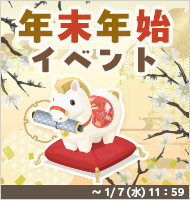





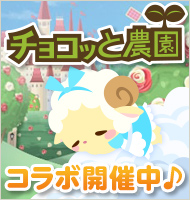
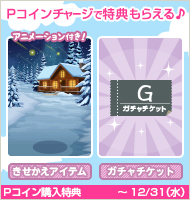




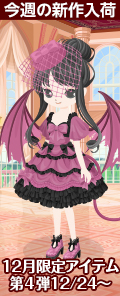
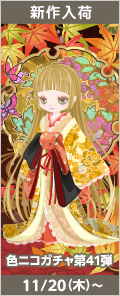
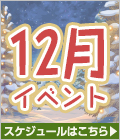


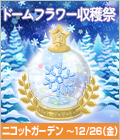


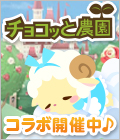



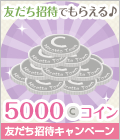

How about your grandpa?
By the way, it is the taste of the cherry, but is more sweet-sour than a product in America. And, it is used for a topping of the fancy cake well too.
See ya!
おじいちゃんは、どう?
ところで、サクランボの味ですが、アメリカ産よりも甘ずっぱいです。そして、良くデコレーションケーキのトッピングにも、使われます。
味 あじ taste
アメリカ産 アメリカさん product in America
甘酸っぱい あまいずっぱい sweet-sour
良く よく well
使う つかう use
Even if the name is the same as the U. S., but there is different fruit. The representative is a cherry. The Japanese cherry is very pretty as like as Kitty with bright red. And the pear is different, too. The form of Japanese pear(Asian pear) is the same as an apple. The fragrance is not strong like American pear. But the freshness is the same.
See ya!
たとえ名前が米国と同じであるとしても、しかし、ちがう果物があります。
代表は、サクランボです。
日本のサクランボは、明るい赤でキティのようにとても、かわいいです。
そして、ナシも異なります。
日本のナシ(アジアのナシ)の形は、リンゴと同じです。
香りは、アメリカのナシのように強くありません。
しかし、新鮮さは同じことです。
名前 なまえ name
米国 べいこく America
同じ おなじ same
果物 くだもの fruit
代表 だいひょう representative
日本 にっぽん(にほん) Japan
明るい あかるい bright
赤 あか red
異なる ことなる different
形 かたち form
香り かおり fragrance
強く つよく strong
新鮮 しんせん freshness
I visited the restaurant of your Nicotto. I send applause to your positive attitude.
See ya!
私は、あなたのニコのレストランを訪問しました。
私は、あなたの積極的な態度に拍手を送ります。
私 わたし I
訪問 ほうもん visit
積極的 せっきょくてき positive
態度 たいど attitude
拍手 はくしゅ applause
送る おくる send
So "freak out" is kind of "ええ!?" and "flip out" is more like "ぎょぎょ!!" in Japanese. lol
I must slow down cranking out sentences this month, as I'll be having my piano solo recital in three weeks.
I'll make up ssentences in fits and starts until the recital is over~. ^^
The background of coordinates is cute. It's a mushroom collecting, isn't it?. We do it in Japan too. A mushroom, a chestnut, walnuts, etc.. are produced in the mountain of Japan in autumn.
However, the person going to take it decreased because a mountain has gone rough recently.
It rains every day recently. The temperature is around 20 degrees, too. The arrival of this autumn may be early.
See ya!
コーディネートの背景は、かわいい。キノコ狩りですね?
それは、日本でもします。キノコ、クリ、クルミ、その他..秋の日本の山には、あります。
しかし、山が最近ラフになったので、それをしに行く人は減少しました。
最近毎日雨が降ります。
また、温度はおよそ20度です。
この秋の到来は、早いかもしれません。
背景 はいけい background
狩る かる collect
秋 あき autumn
山 やま mountain
最近 さいきん recently
減少 げんしょう decrease
毎日 まいにち every day
雨が降る あめがふる rain
温度 おんど temperature
到来 とうらい arrival(arrive)
早い はやい early
The typhoon comes over from the south. And autumn is approaching from the north now. Speaking of autumn, it is the autumn of the appetite.
Well, do you know the Onigiri(おにぎり) of Japanese foods?
We'd bring the Onigiri(おにぎり) to a picnic often.
And we eat Onigiri(おにぎり) in doing a barbecue.
Please look at it in YouTube if you don't know Onigiri(おにぎり) yet.
See ya!
台風は、南からやって来ます。
そして、秋は、今、北から近づいています。
秋といえば、食欲の秋です。
さて、あなたは日本の食品のOnigiri(おにぎり)を知っていますか?
我々は、しばしばピクニックにOnigiri(おにぎり)を持ってきます。
そして、我々は、バーベキューをする際に、Onigiri(おにぎり)を食べます。
あなたがまだ知らないならば、YouTubeでそれを見てください。
台風 たいふう typhoon
南 みなみ south
来る くる come
秋 あき autumn
今 いま now
北 きた north
近づく ちかづく north
食欲 しょくよく appetite
食品 しょくひん food
知る しる know
持つ もつ bring
我々 われわれ we
際 さい (in)
見る みる look
So every Japanese learns them at schools.
We start learning them in the first grade of elementary schools when kids learn simple characters like
一二三四五六七八九十、日月火水木金土、上下山川右左人生 and so forth.
Then kanji we learn gradually become complicated like 競、準、飛 etc. (We probably learn them in the 6th grade.)
We have 漢字検定, Kanji Test, which ranges from 10th grade to 1st grade.
If you have a chance to look at the books for the test, you'll know what order we learn kanji at school.
I wanted to show you a list of 常用漢字, but it's an あいうえお order and simple kanji and complicated kanji are jumbled.
I thought if you'd see it, you'd be a bit discouraged to learn, as there are too many kanjis (more than 2000!) including lots of recondite ones!
Can I use it when I get tired too?
The Portuguese and the Spaniard came over to Japan from the south 500 years ago. And the typhoon in the same way come from the south . A typhoon came over this year too. , we observed 71 meters of wind velocity in Ishigakijima (Ishigaki Island) of Okinawa yesterday. It's true!
500年前、ポルトガル人やスペイン人は、日本に南からやってきた。台風も同様に南からやってきます。今年も台風が、やって来ました。沖縄の石垣島では、風速71メートルを、きのう観測しました。ホントだよ!
南 みなみ south
台風 たいふう typhoon
同様 どうよう in the same way
今年 ことし this year
来る くる come
沖縄 おきなわ Okinawa
石垣島 いしがきじま
風速 ふうそく wind velocity
観測 かんそく observe
See ya!
I do not understand Spanish. But they who came over to Japan for the first time 500 years ago were surprised at Japanese pronunciation. It seems to be because pronunciation is similar. And they made the Japanese Romaji because they learn Japanese.
See ya!
授業のようすを知らせてくれてありがとう。
私は、スペイン語は、わかりません。しかし、500年前に日本にやってきた彼らは、日本語の発音に驚きました。それは、発音が似ているからです。そして、彼らは、日本語を学ぶために、ローマ字を作りました。
授業 じゅぎょう class
知らせる しらせる inform
私 わたし I
スペイン語 すぺいんご Spanish
発音 はつおん pronunciation
日本語 にほんご Japanese
驚く おどろく surprise
学ぶ まなぶ learn
ローマ字 ろーまじ Romaji
Regarding to Kanji, you'll need to write down the same kanji on the paper 10 times or more everyday.
That's the way we memorise it. It really takes time to master Kanji!
When someone is joking around, do you say "Oh, got weak!" or "Oh, get weak!"?
As of Windows 10, you don't need to upload it at all. I can't find any benefits since I changed the version.
Oh, that's not precise, SOMEONE changed it.
When I got up and booted up my PC, W10 had already uploaded. lol I'd been just ignoring the sign of uploading, though.
I thought my son had done it, but he denied it and insisted that I had done it! What??@@
Anyway, you are wise not to think about uploading it~^^
Hmm.. it's interesting! Japanese students still learn some Chinese Characters at school. They have tests for that too~!
I've learned a lot from your example sentences; they were easy to understand! Hey, Great teacher~!
Are you being taught those expressions at school at the moment?
I'm curious about what you are learning in the English classes~!
I think there's no difference between 少し and ちょっと, but probably ちょっと is a bit casual.
You seem to enjoy painting very much! Enjoy the club~!
美術部に入部 is better~.^^
Then many of the students take part in the club activities until 18 or 19, and some of them go straight to a cram school until 22 or something.
I think children in Japan are too busy!
I don't think they have time to do their home work, or maybe they don't get any home work at school.
Cram schools give them tons of home work!!!@@
In my book, if teachers at schools teach well and give children enough home work, they don't need to go to cram schools~.
You really wake up early every morning! I'm now lazy and can't get up that early... I used to get up at 6 to prepare a packed lunch for my son, though. ...oh, I respect you~!
I'll try to chill out today!^^
I hope you'll be able to take Japanese near future. Maybe the class would be too easy for you, though.^^
You really know a lot about Japanese. Just a few tiny corrections as below;
学校で、今スペイン語の授業を受けることになっている。
先生があまりにも速く教えるから、私はわからないよ。
毎日日本語を使うはず。
would be perfect sentences. ^^